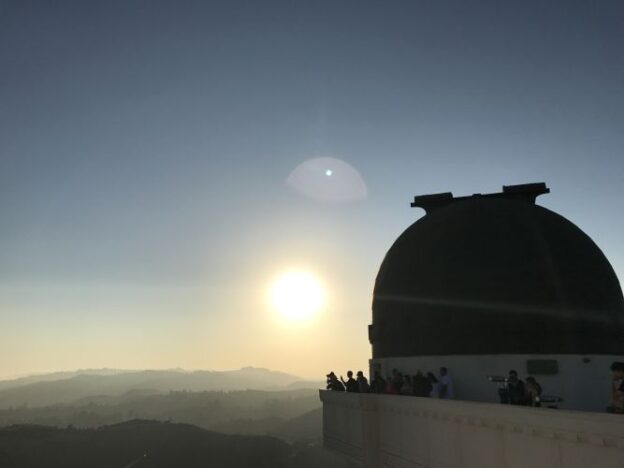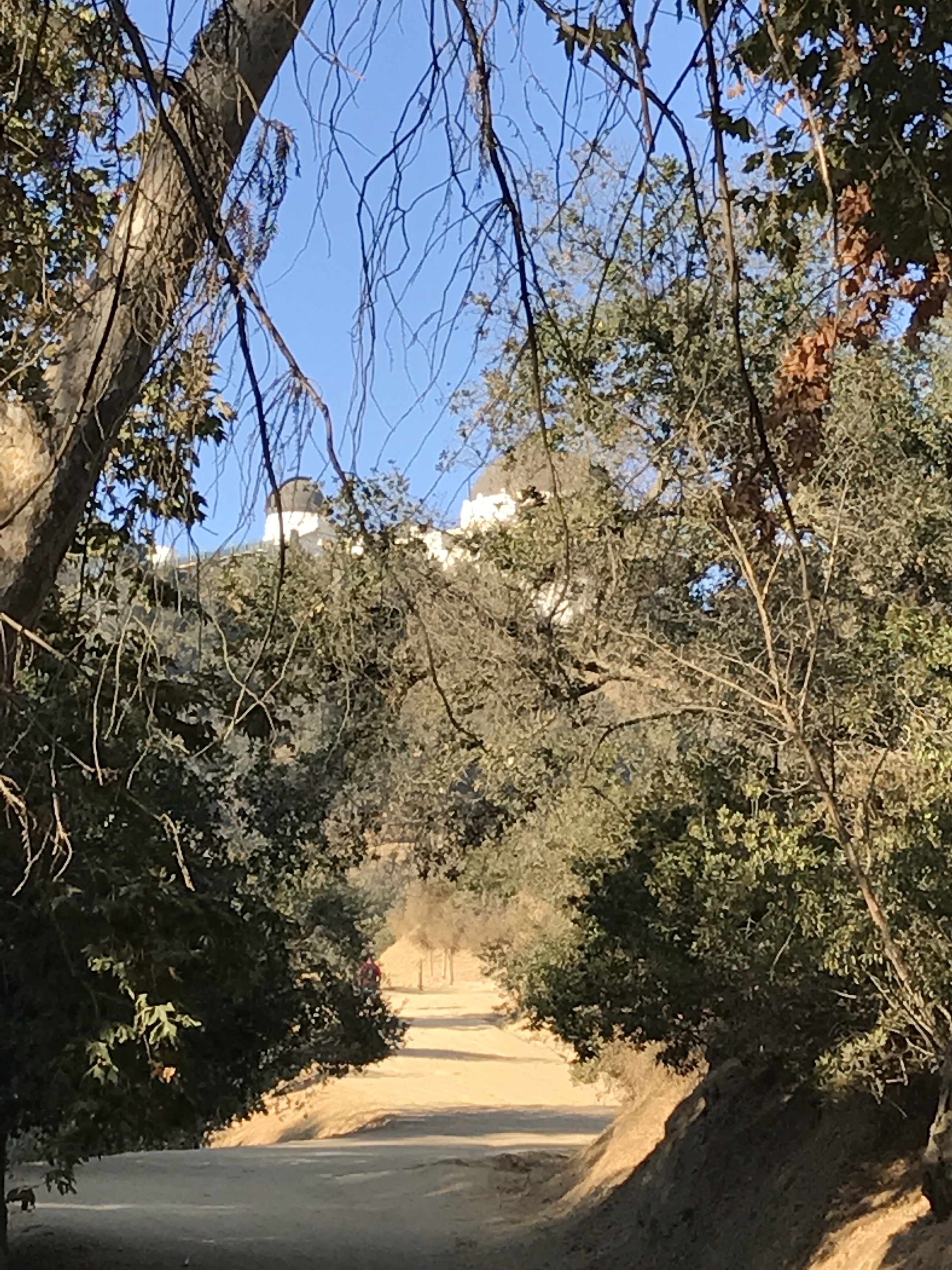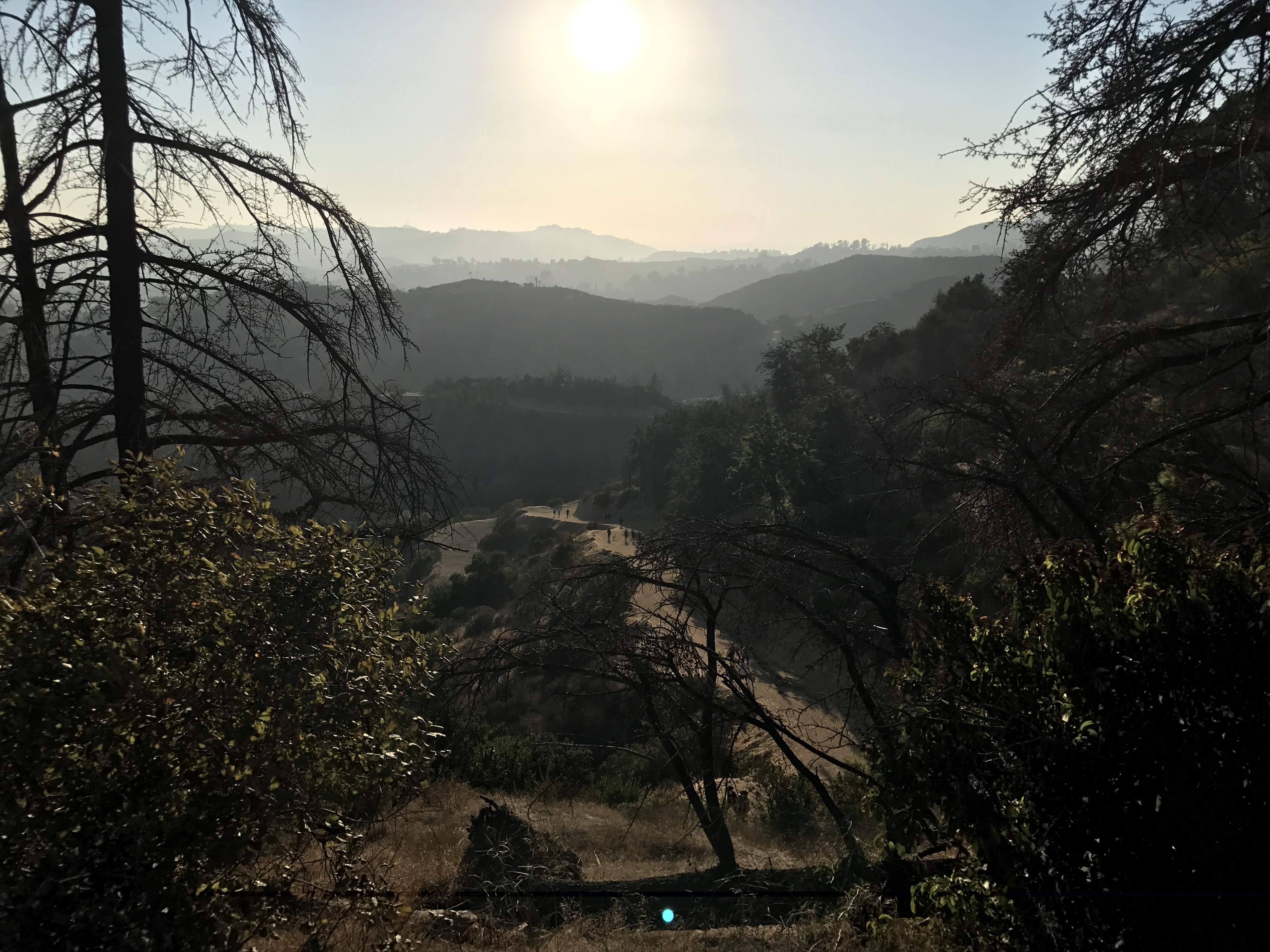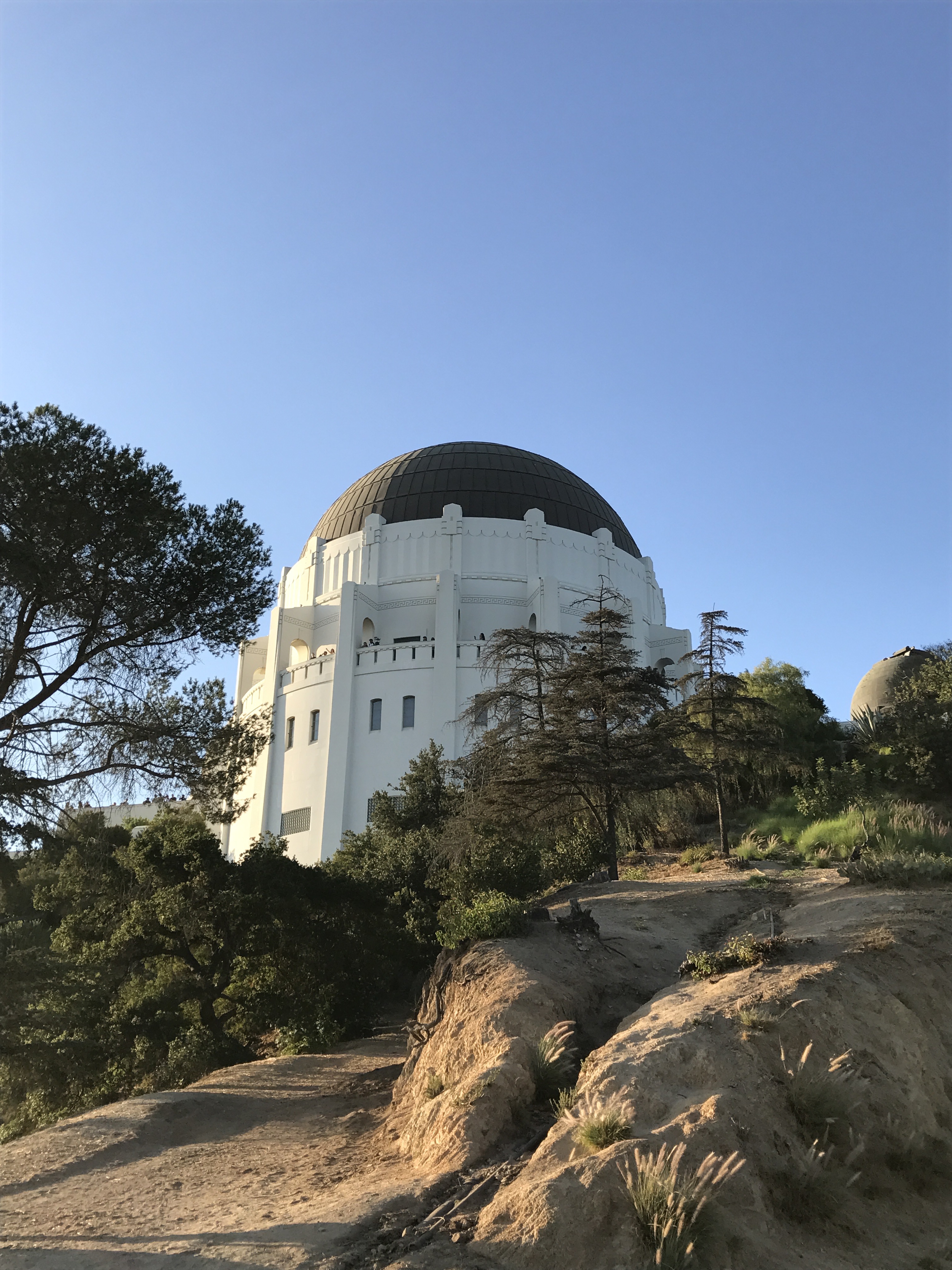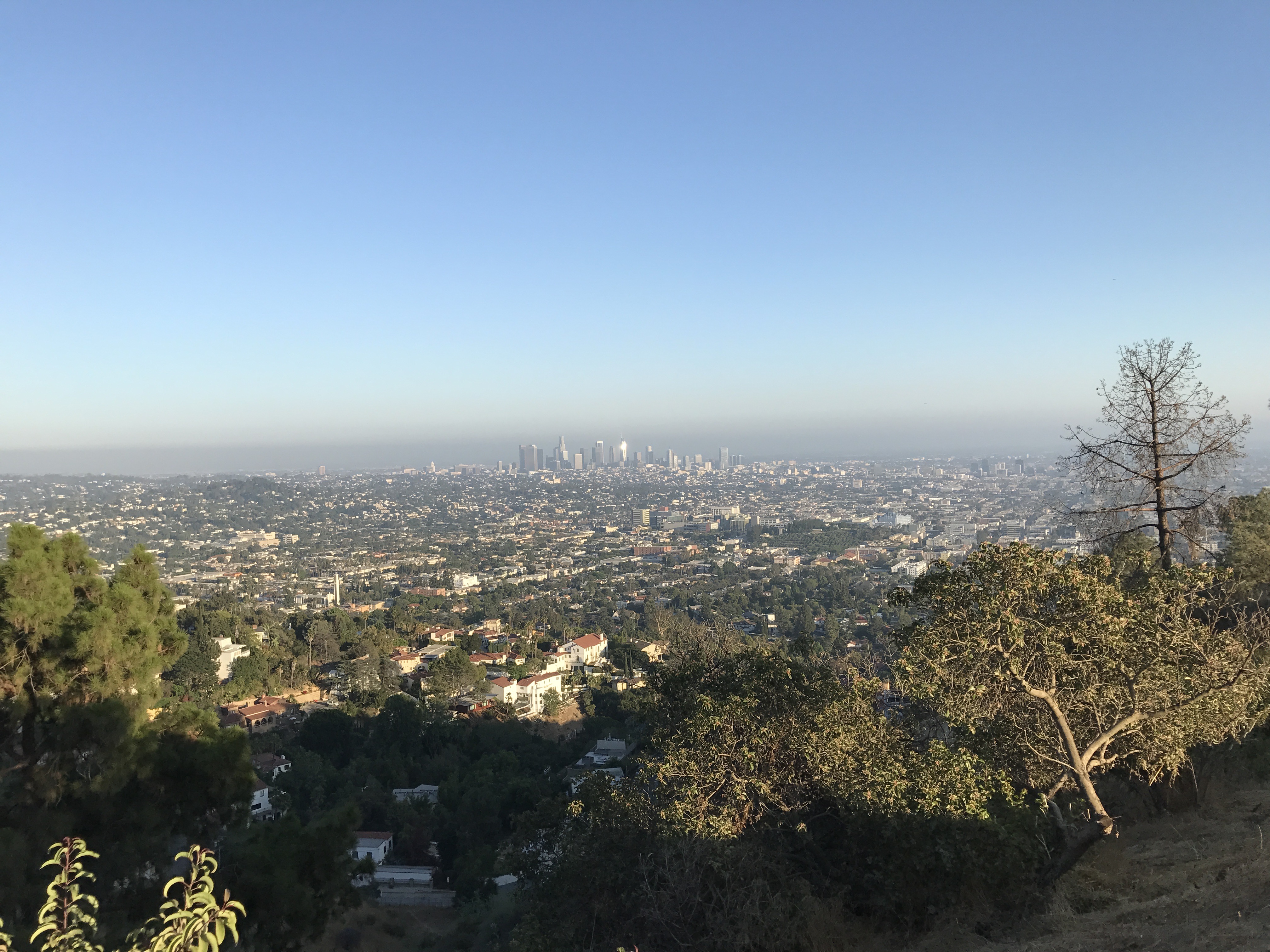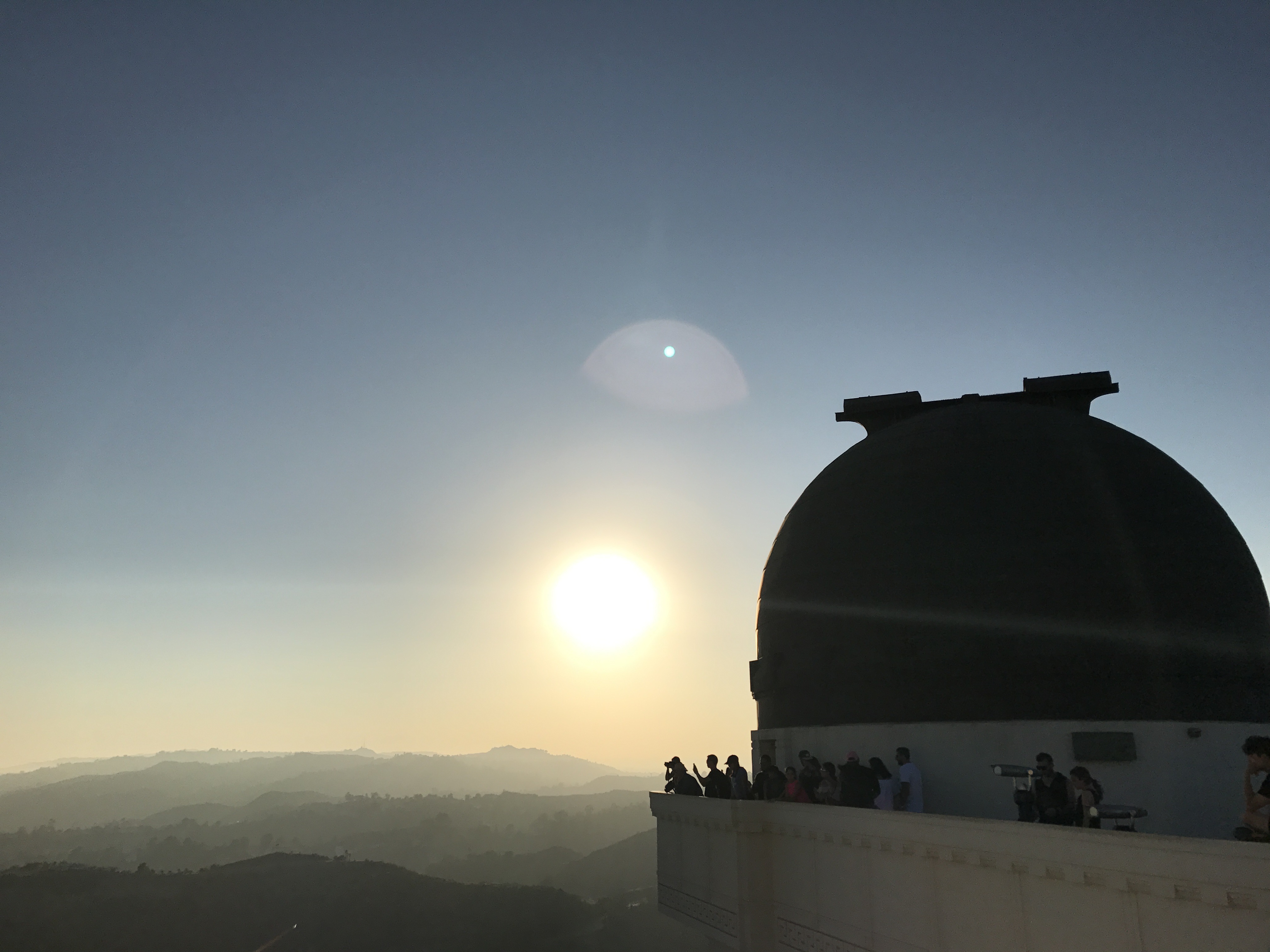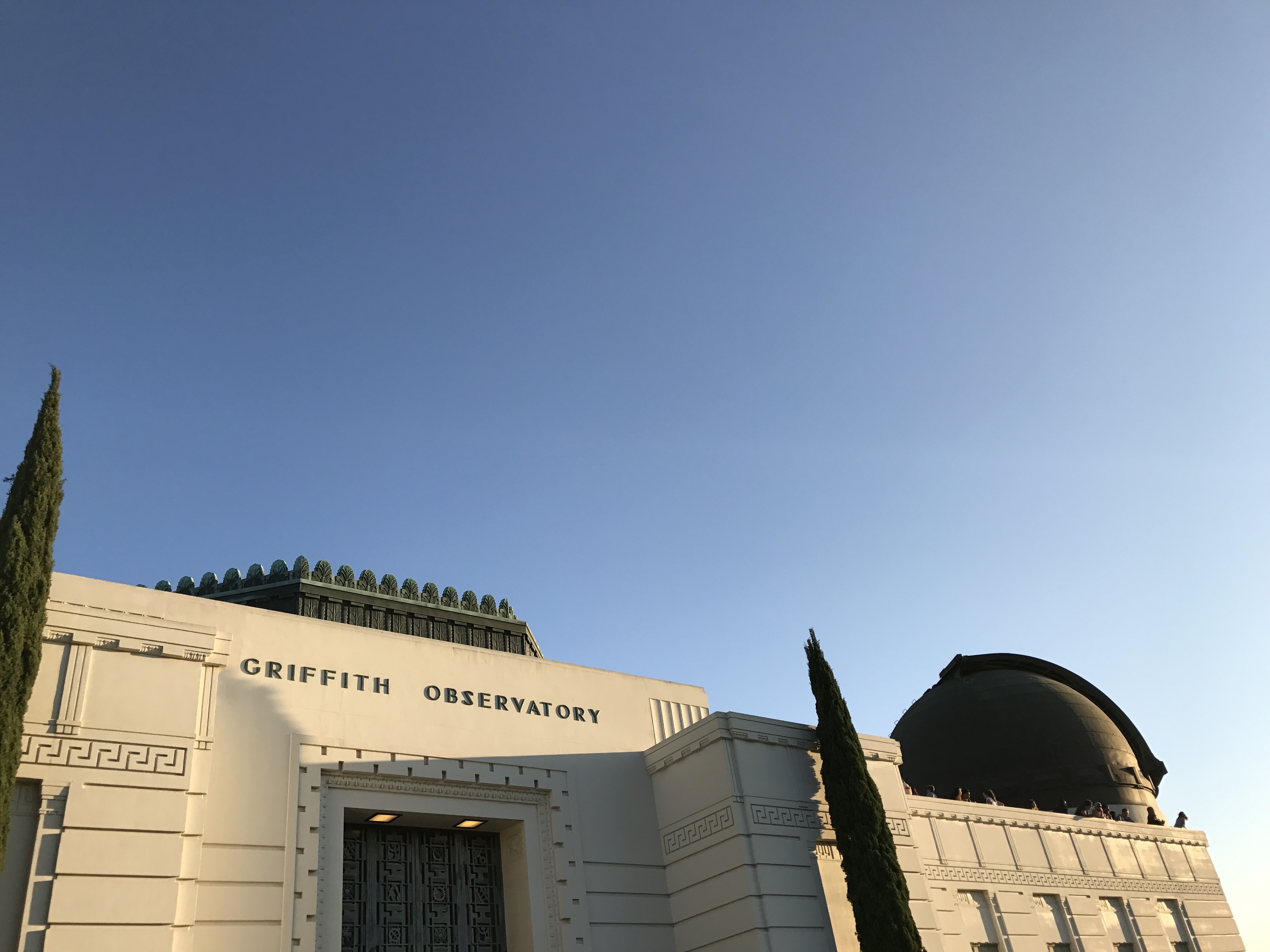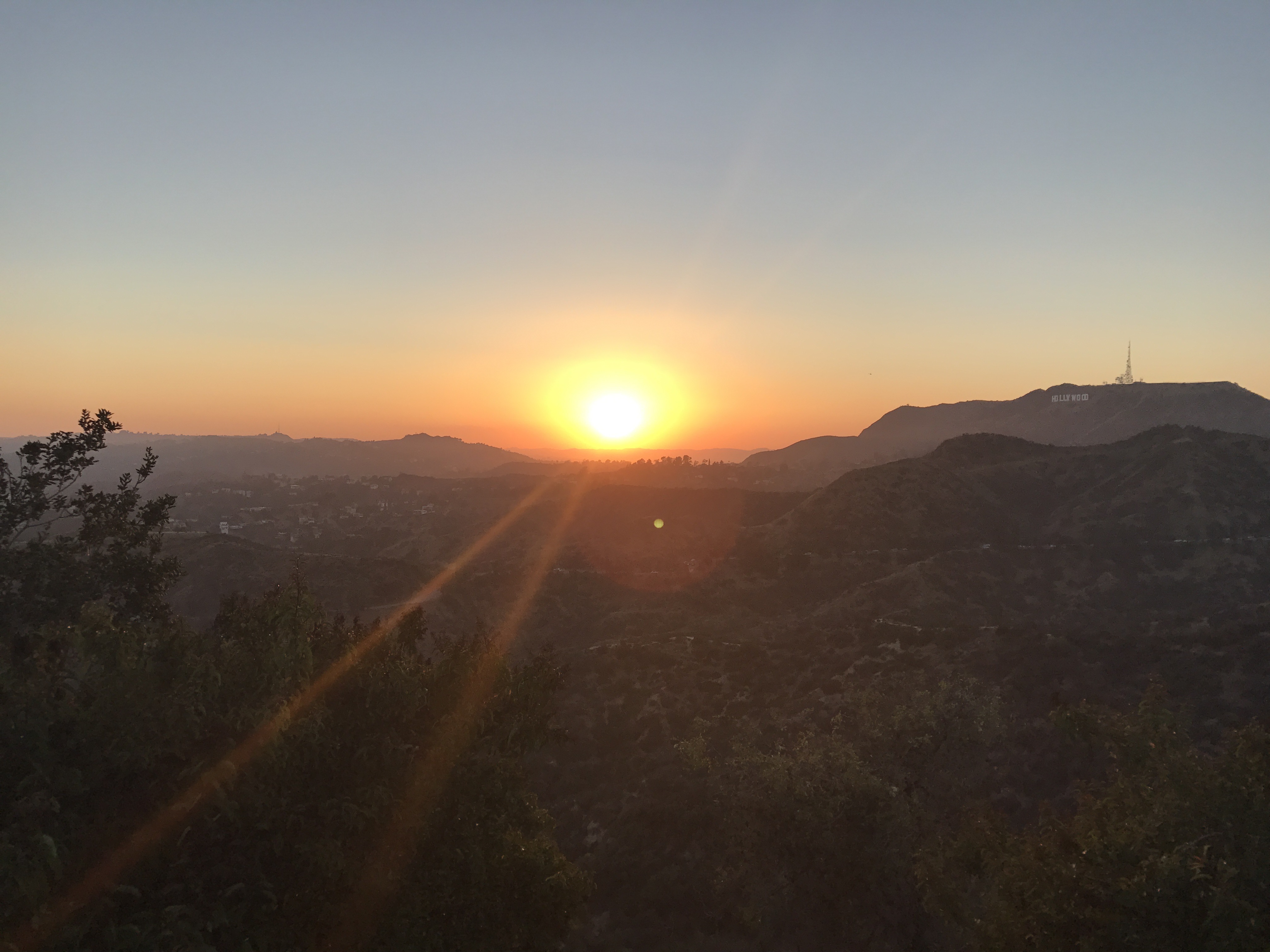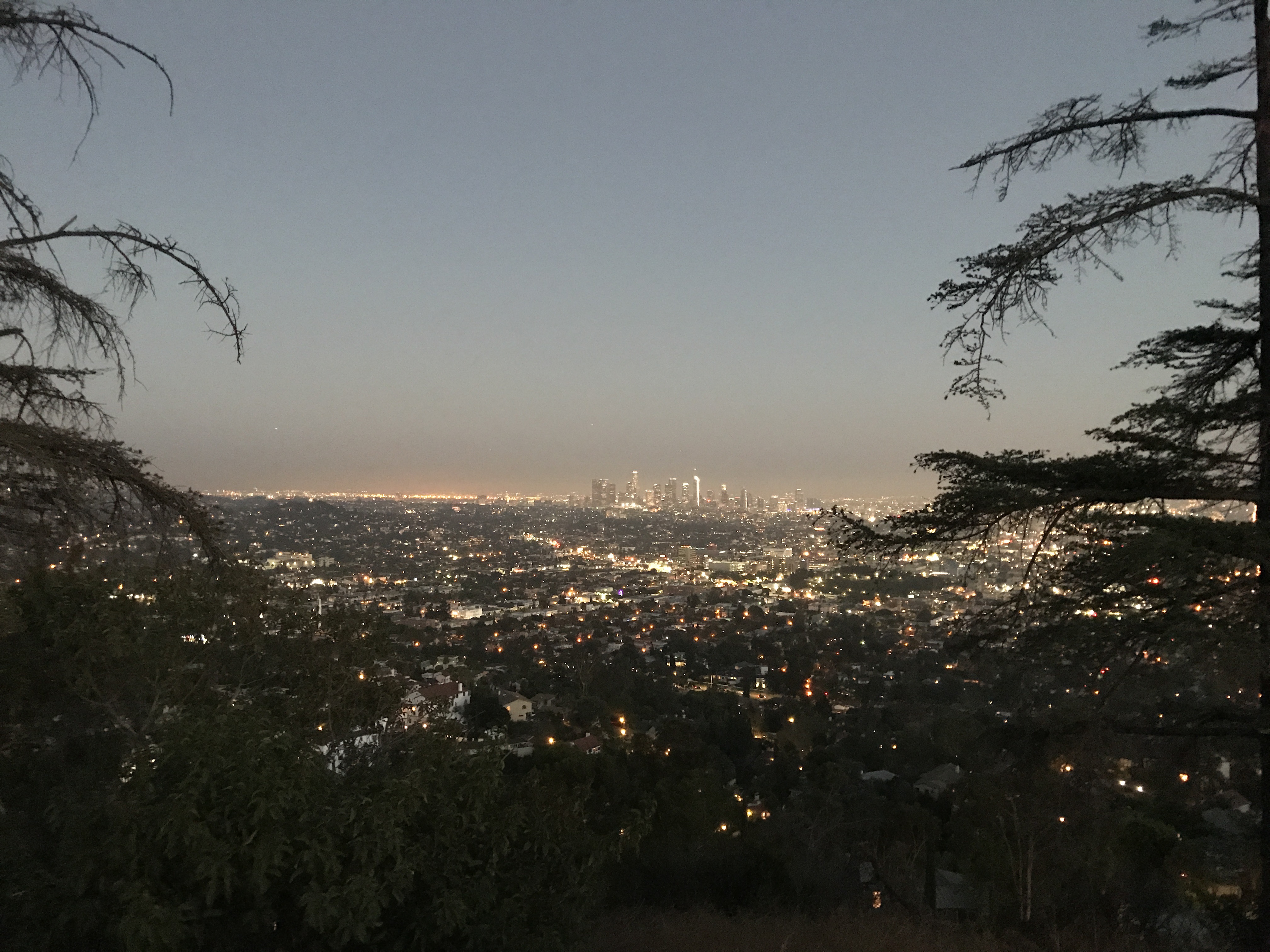In this episode I talk about visiting the fantastic Griffith Observatory and then ‘go off on one’ about Astronomy vs Astrology and ludicrous flat earth conspiracy theories. Includes various bits of vocabulary throughout the episode.
![]()
[DOWNLOAD]
Episode notes and transcriptions
Just before we start I just realised that I forgot to mention some of your responses to the episode with my Dad about cricket which was uploaded in August.
Cricket episode (#473) comments
In general, the responses seem to be along these lines: I love listening to you talk to your Dad, it’s always nice to hear his voice and his descriptions of things, but this was the most difficult episode of the podcast ever! You broke my mind! You destroyed my brain!
Here we go with part 3 of this series which is based around some of the things I saw while I was away on holiday last month.
You should listen to parts 1 and 2 before hearing this, because that will put this episode in the right context. In a nutshell the context is that my wife is preggers, she’s got a bun in the oven. By the way, I just wanted to say that I chose to reveal this personal news because it would be impossible to keep it secret, right? For example if my uploading becomes a bit erratic when the baby arrives, you’ll understand why. Perhaps you can manage your expectations a bit if you remember that I’ve “got a lot on my plate“. Having a child will be wonderful but probably quite disruptive, but I certainly don’t plan on halting this project as a result. We went on hols to the USA for a “babymoon” (our chance to enjoy a fairly big holiday together while it’s just the two of us), we saw some really interesting things and it gave me inspiration to talk about some topics on the podcast.
What’s this episode all about?
In this one the plan is to talk about astronomy, astrology and flat earth conspiracy theories. I hope there will be enough time! Let’s see. If I run out of time, some of those things will no doubt turn up in the next episode.
I expect the main questions for this will be:
- What is the Griffith Observatory and what did we see there? )And how do you pronounce Griffith Observatory?)
- What is the difference between astronomy and astrology?
- Is astrology a load of old nonsense, or is it all right?
- What is the flat earth theory all about?
- Why do people think the earth is flat?
- Is the earth flat or is it round (I’m pretty sure it’s round or globe shaped)?
- What words can you pick up from all of this to help expand your vocabulary, improve your listening and develop your English in general?
We will see as we go through the episode.
Vocabulary for you to learn (check the notes and script)
On the subject of the English you’re going to hear, I will try and define some language as it comes up, but also you should check the page for this episode. In the episode archive search for episode 476 (oh that’s this page- you’re already here). On that page you’ll see some notes and some transcriptions, and there you can see the words and phrases, see how they are spelled, copy/paste expressions to your word lists or flashcard apps and so on, or just enjoy listening to the episode.
Griffith Observatory and a hike in the park
There was lots of geology and astronomy on this holiday. The geology because of the National Parks and all the rock formations with their stories of history, and astronomy because we visited the Griffith Observatory (this place dedicated to observing the sun and the night sky). Also, in a hotel one evening while zapping between the many TV channels I came across a long interview with famous astrophysicist Neil DeGrasse Tyson, which was absolutely fascinating and also quite mind blowing – as he usually is.
You can listen to that conversation with Neil Degrasse Tyson on the Nerdist podcast here.
And then near the end of the holiday there was the total solar eclipse over some parts of the USA and every single person was talking about it. We didn’t see the full eclipse, but experienced some of it. So, lots of big things like the moon, the stars, the earth, our place in the universe and also the value of proper critical thinking and science in general.
We had a nice hike (not too demanding but not too easy) through Griffith Park up to the observatory. Hiking…
Walking up through the park we had views of Griffith Park and the Hollywood hills and the Hollywood sign. You get views over LA including the high-rise buildings in the downtown area.
It’s cool to be doing some hiking in what feels like the countryside and then to turn around and see the skyline of the city.
Hiking to Griffith Observatory
Griffith Observatory and Griffith Park are named after the man who donated the land (about 12 km squared) and paid for the observatory and theatre.
His name was Griffith J. Griffith. What a name!
Imagine calling your son Griffith Griffith!
Interesting bloke. Here’s the first paragraph of Wikipedia’s page about him:
“Griffith Jenkins Griffith (January 4, 1850 – July 6, 1919) was a Welsh industrialist and philanthropist. After amassing a significant fortune from a mining syndicate in the 1880s, Griffith donated 3,015 acres (12.20 km2) to the City of Los Angeles which became Griffith Park, and he bequeathed the money to build the park’s Greek Theatre and Griffith Observatory. Griffith’s legacy was marred by his notorious shooting of his wife in 1903, a crime for which he served two years in prison.”
Bequeath = to leave property to a beneficiary in a will
Bloomin’ heck, that escalated quickly!
(Find out some more about Griffith J Griffith – includes some reading from the Wikipedia page)
https://en.wikipedia.org/wiki/Griffith_J._Griffith
Anyway, (despite that horrible crime) it’s cool that this guy clearly believed in the importance of having a space dedicated to teaching ordinary people about how the earth fits into our galaxy, how it interacts with the sun and the moon, and all that stuff.
Astronomy is fascinating, I think.
Astronomy vs Astrology (the difference)
Astronomy – the scientific study of stars, planets and natural objects in space
Astrology – the study of movements of stars and planets and the belief that these movements can affect the lives of humans on earth. So that includes the predictions written into horoscopes, the system of star signs and how they are said to dictate our personalities and the things that will happen to us.
I don’t believe in astrology.
How could the movement of stars and planets affect whether your boss will give you a pay rise or if you’ll have an awkward encounter with a possible lover?
Who knows, maybe our lives are totally subject to astrological forces out there and everything that happens has already been written in advance, but I don’t think there’s much reliable evidence for it.
But that’s not the point for people who believe in horoscopes. I think for them it’s not about looking for the most reliable theory to understand the universe. It more about finding the one that makes you feel right about yourself.
But I’m not buying it.
Rambling about ambiguous horoscopes…
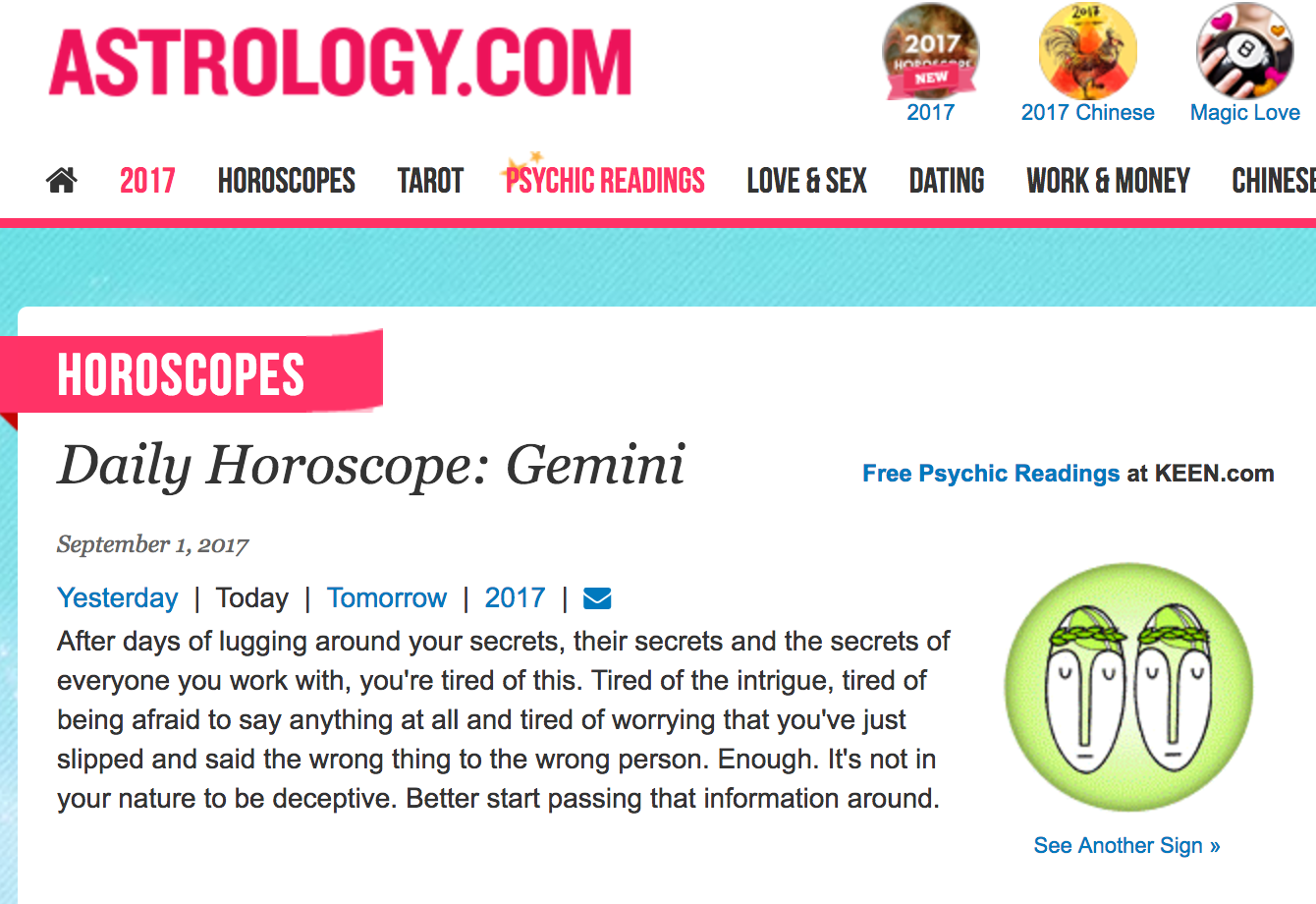
https://www.astrology.com/us/horoscope/daily-extended.aspx

https://techasli.com/pisces-daily-horoscope-today-wednesday-30th-august-2017/
We’re not the centre of the universe. We’re part of something much larger than we can possibly imagine. (I sound like Obiwan Kenobi)
Sure, Saturn is a huge thing out there in space and it does have forces of gravity, probably radiation that come from it, but my iPhone probably produces more radiation than Saturn, because it’s so much closer to me than Saturn. I get it, Saturn is big, but it’s also very very far away. The mass of the table in front of me exerts more influence on me than the mass of Saturn at this distance.
And, if horoscopes can predict the future, why aren’t they front page news?
Maybe they don’t want to seem arrogant.
Yeah we can predict the future, we know what’s going to happen to the money markets, to the environment, to each individual person, but we don’t like to make a big deal out of it.
Horoscopes are never on the front page, they’re always printed in the middle of the newspaper, next to the crossword and the sudoku. “Yes, we know the future of your children, but let’s just print it down here in the corner next to these puzzles.”
Anyway, at the Griffith Observatory, it was nice to get a dose of space stuff – some astronomy. It’s great to see that this building is devoted to educating people about astronomy and that loads of people were there, families with their kids (even if they were annoying “Mommy look this is awesome!” etc) it’s good to see that these kids are being educated about science.
They have cool interactive models and presentations about the earth’s orbit around the sun, with live telescope footage of the sun itself (through loads of filters of course), the moon’s orbit around the earth, the way the moon and the sun together affect the tides in the oceans. It was really cool.
And the earth is round, by the way.
Flat Earth (Conspiracy) Theory – Some people still believe the earth is flat
These days Flat Earth theories seem to be quite popular again, especially on the internet.
I didn’t meet anyone or at least speak to anyone in the USA who believed in flat earth theory, but I’ve seen a lot of talk of it online.
There are quite a lot of youtubers and even famous musicians and celebrities who spread the idea that the earth is flat and that there’s a global (although I guess they wouldn’t use the word “global”) conspiracy to convince us all that it’s in fact round, or a ‘globe’.
Most of these people are Americans of course, because as far as I can tell the USA is the world’s #1 place for conspiracy theories.
I’m quite interested in conspiracy theories and I’m willing to hear the arguments. Some of them are fairly convincing (e.g I’m a bit sceptical about the official story of the JFK assassination but I don’t pretend to know what really happened) and other theories are completely ridiculous.
I think the flat earth theory is in the latter category.
Flat earth summary: https://www.livescience.com/24310-flat-earth-belief.html
I think it’s ridiculous believing the earth is flat because it means you have to also reject:
Pretty much all the basic understandings that we have of the way the world works, including the laws of physics, which are tested time and time again, scientifically (which means subject to the most reliable forms of objective testing and scrutiny possible). You have to reject the big bang theory, and even the basic law of gravity.
And you have to believe that all the governments, shipping and airline companies, scientists in different communities around the globe and in fact all those underpaid science teachers – you have to believe they are all part of a huge organised conspiracy to maintain the idea that the earth is round, when in fact it is flat.
What would be the purpose of doing that?
And anyway, it’s impossible! We’re just not competent enough to do that.
As a species we’re not even able to keep a sex tape secret, so what chance do we have of maintaining a lie that big?
I think we have to look at why people choose to believe in this kind of thing anyway.
I think it goes together with a general sense of distrust in authority, a feeling of individual empowerment that you get from believing something like that and the simple human ability to get stuck in a certain worldview and then block out anything that contradicts it, even if it’s rational evidence that has been proven over and over again.
I think once a person has invested themselves in a certain belief system for whatever reason, it’s very hard to get them out of it.
For example, you might hear a conspiracy theorist say “I believe the earth is flat and nobody can convince me that it’s not”.
That’s all you need to know really. They’re not interested in being convinced with evidence.
They’re more interested in pursuing their belief and maintaining it. Why? I don’t know. I think it’s an aspect of human nature that is very powerful and you can see it in lots of other situations too – like for example the way people end up getting involved in religious cults or the way people do very bad things because they believe they’re carrying out some kind of divine plan.
Flat earthers are not as bad as people like that, I suppose, but what would happen if the President came out as a flat earther? Then what? Would flat earth theories start to enter schools? Would more and more people start to believe it? If the flat earthers eventually outnumbered the scientific community, the round earth community, would flat earth become the dominant idea? Hundreds of years of history could be wiped out by a belief system like that. It’s actually possible, that’s the thing.
Let’s listen to a couple of YouTubers talking about it.
https://www.youtube.com/watch?v=vKAiJT_BdTU&t=183s
If you disagree and you think the earth is flat (which is very trendy at the moment by the way) write your ideas in the comment section. Why do you think the earth is flat? What’s your evidence? How do you deal with things like the laws of gravity or the fact that shadows are at different lengths on the ground in different places at the same time of day?
Thanks for listening! Leave your comments below with any thoughts from this episode.
Did you notice any good bits of vocabulary? You could copy&paste them into the comment section.
Cheers,
Luke
